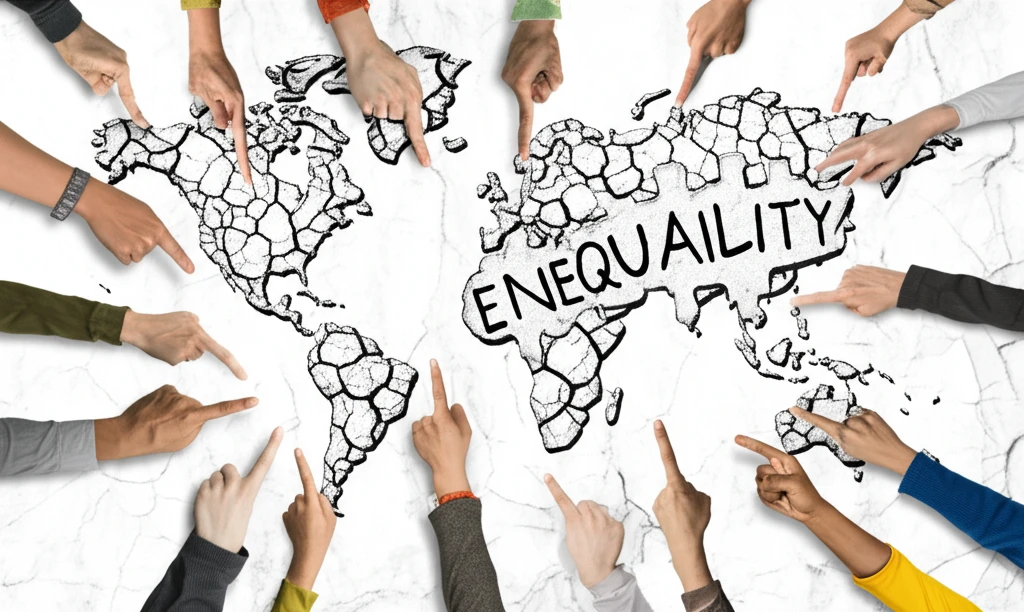
Decoding Global Wealth: How FDI Impacts Inequality
"Unpacking the complexities of foreign direct investment (FDI) and its ripple effects on global wealth distribution. A deeper dive into wealth creation vs. inequality."
The flow of money across borders, particularly through Foreign Direct Investment (FDI), is often hailed as a catalyst for economic growth. Multinational Enterprises (MNEs) are the engines of this investment, promising to bring jobs, technology, and prosperity to host countries. However, the reality on the ground is frequently more complex than these promises suggest. The relationship between FDI, the activities of MNEs, and the resulting wealth distribution is a subject of ongoing debate among economists and policymakers.
For decades, scholars have grappled with the question of whether FDI truly lifts all boats or if it exacerbates existing inequalities. The allure of foreign investment is strong, as it can supplement domestic savings, inject new technologies, and intensify competition. But critics argue that MNEs can crowd out local businesses, exploit tax loopholes, and repatriate profits, leaving host countries with a skewed distribution of wealth. This article dives into this complex issue, dissecting the impacts of FDI on inequality and exploring potential solutions.
We aim to provide a balanced perspective, drawing from academic research and real-world observations. We will explore how FDI affects different segments of society, examine the role of government policies in mitigating inequality, and consider what MNEs can do to promote more equitable outcomes. Ultimately, understanding the multifaceted relationship between FDI and inequality is crucial for fostering sustainable and inclusive economic growth in an increasingly interconnected world.
Does FDI Fuel the Gap? Understanding Inequality's Rise

The connection between inequality and economic growth has been a subject of intense scrutiny for many years. Early theories, such as those proposed by Simon Kuznets, suggested that inequality initially rises during the early stages of development before declining as economies mature. However, the reality is far more nuanced, with many contextual factors influencing this relationship. This section explores the complex ways in which FDI can impact income and wealth distribution.
- Skill-Specific Technological Change: FDI often brings advanced technologies that require specialized skills, increasing the demand for skilled labor and driving up their wages.
- Skill-Specific Wage Bargaining: Skilled workers may have greater bargaining power, allowing them to negotiate higher wages in foreign-owned firms.
- Composition Effect: Foreign firms often locate in skill-intensive sectors or segments, further increasing the demand for skilled labor.
- Training and Education Effects: FDI can influence the supply of skills through firm-specific training and contributions to general education.
Can We Fix the Gap? Government's Role in FDI's Impact
While MNEs and their FDI contribute to income and wealth inequality, governments have the power and scope to influence this calculus. These actions should include the usual suspects – progressive tax systems, income transfers, provision of basic income supplements but also other policies such as regulation and incentives that promote entrepreneurship that can help mitigate some of the worst effects of inequality.
